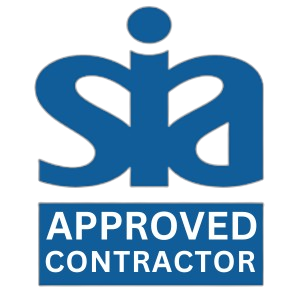In today’s fast-paced world, K9 dog security services in London are gaining popularity for their unmatched effectiveness in protecting people and property. Whether it’s a public event, a private premises, or high-risk area surveillance, these four-legged protectors are trusted to do the job with unmatched loyalty and precision.
But there’s more to deploying K9 units than simply having a trained dog on-site. There are strict regulations and standards that govern how K9 security services operate in London to ensure safety, professionalism, and legal compliance. In this guide, we’ll break down everything you need to know about the rules for K9 dog security services in London—from legal requirements and training standards to licensing and handler responsibilities.
Why K9 Dog Security Services in London Are in Demand
Before diving into the rules, it’s essential to understand why K9 dog security services in London are considered one of the top choices for modern security needs:
-
Deterrent to criminals: The mere presence of a trained dog can prevent unlawful behaviour.
-
Quick response: Dogs react to threats faster than humans in many situations.
-
Enhanced detection: Trained K9s can detect drugs, explosives, and hidden intruders.
-
Cost-effective: A K9 unit can cover more ground than a single guard.
These benefits make K9 units a preferred security option for events, warehouses, airports, construction sites, and more.
Legal Requirements for K9 Dog Security Services in London
1. SIA Licensing for Handlers
Anyone working in K9 dog security services in London must hold a valid Security Industry Authority (SIA) license. The license ensures that the handler is competent and has passed a criminal background check.
-
A front-line SIA licence is required for those directly patrolling or engaging with the public.
-
Handlers must also complete the Level 2 Award for a Security Dog Handler qualification from a recognised training provider.
2. Animal Welfare Act 2006
Under the Animal Welfare Act 2006, K9 security dogs must be treated humanely. Security providers must:
-
Ensure dogs are well-fed and hydrated.
-
Provide rest breaks and shelter during operations.
-
Avoid using excessive force or putting dogs in harm’s way.
Breaching this law can lead to fines, imprisonment, and revocation of business licences.
Handler and Dog Training Standards
The effectiveness of K9 dog security services in London heavily depends on the training of both the dog and the handler. Here’s what’s required:
1. NASDU or BIPDT Certification
K9 teams in London typically train under National Association of Security Dog Users (NASDU) or British Institute of Professional Dog Trainers (BIPDT) guidelines. These organisations ensure:
-
Obedience training and controlled aggression
-
Scent detection capabilities
-
Real-world scenario drills
-
Regular re-certification and skill assessments
2. Ongoing CPD (Continuous Professional Development)
Handlers must engage in ongoing training and assessments to maintain a high level of skill. Dogs, too, must be regularly trained and evaluated for performance and temperament.
Insurance and Liability Cover
Any business offering K9 dog security services in London must have the right insurance in place. This includes:
-
Public Liability Insurance: Covers incidents where a member of the public is injured or property is damaged.
-
Employers’ Liability Insurance: If handlers are employees, this is legally required.
-
Canine-specific cover: Includes injury, illness, or loss of the working dog.
Having the correct insurance not only protects your business but also reassures clients that you are operating responsibly.
Health and Safety Considerations
1. Risk Assessments
Before deploying a dog team, a thorough risk assessment must be conducted. This ensures:
-
The environment is safe for the dog and handler
-
Appropriate PPE (personal protective equipment) is used
-
Emergency plans are in place
2. First Aid for Dogs
Handlers must be trained in basic canine first aid, including how to deal with heatstroke, cuts, and other injuries. It’s also advised to carry a canine first aid kit during patrols.
Signage and Public Awareness
When K9 dog security services in London are in operation, visible signage should be displayed to alert the public. This serves multiple purposes:
-
Legal compliance under health and safety laws
-
Deterrence by warning potential intruders
-
Public assurance that trained professionals are present
Transportation and Kennelling
When dogs are transported, the vehicle must be secure and ventilated, with separate compartments to avoid harm. It must also:
-
Comply with DEFRA transportation guidelines
-
Provide water and temperature control
-
Be regularly cleaned and maintained
Kennelling must also be compliant with DEFRA’s Animal Welfare Regulations, ensuring dogs are kept in humane and hygienic conditions.
Key Do’s and Don’ts for K9 Security Teams
Do:
-
Keep dogs up to date with vaccinations
-
Log training and deployment hours
-
Have a vet contact on call
-
Rotate dogs to avoid fatigue
Don’t:
-
Deploy dogs without handler supervision
-
Use dogs as weapons
-
Leave dogs in vehicles unattended in hot weather
-
Neglect grooming or basic care
Who Regulates K9 Dog Security Services in London?
Several organisations play a part in regulating K9 units in the UK:
-
SIA (Security Industry Authority): Oversees licensing
-
NASDU/BIPDT: Sets training standards
-
DEFRA: Enforces animal welfare and transportation rules
-
HSE (Health and Safety Executive): Ensures workplace safety
By complying with these bodies, K9 dog security services in London can operate both safely and legally.
Final Thoughts
In a city as dynamic and densely populated as London, K9 dog security services offer a reliable and effective solution for security challenges. But with great responsibility comes strict rules—and rightfully so. From licensing and welfare to insurance and signage, every detail matters.
Whether you’re a handler, a business owner, or a client looking to hire a K9 unit, understanding these rules ensures safety for both the public and the dogs doing the work.



